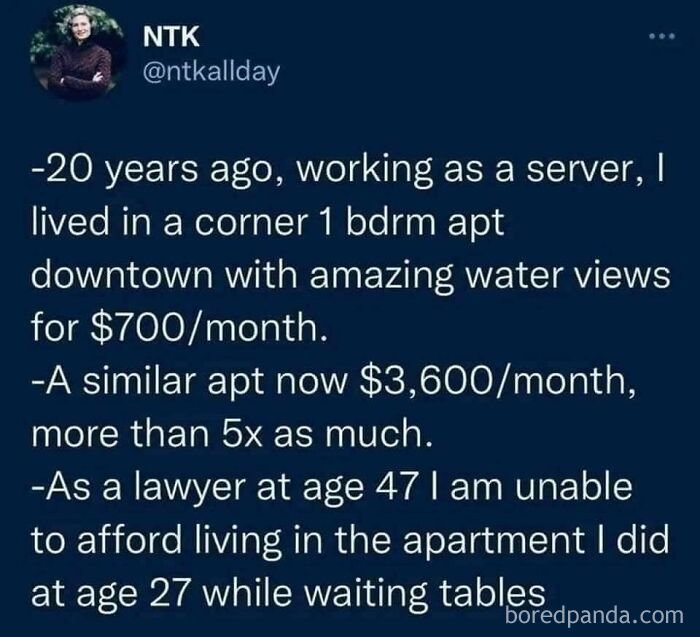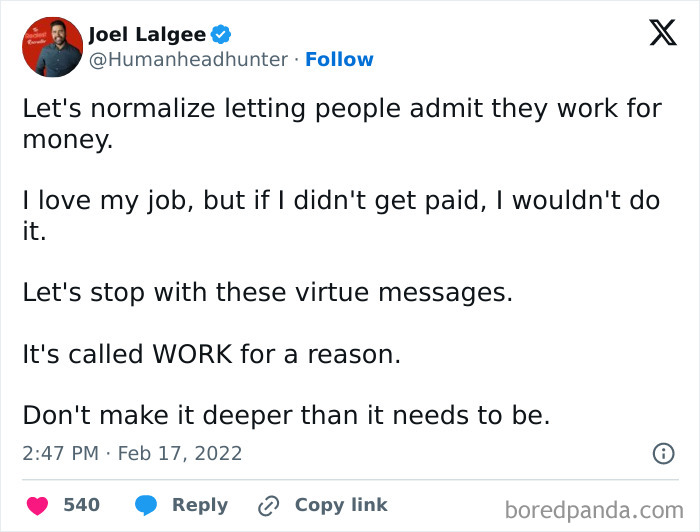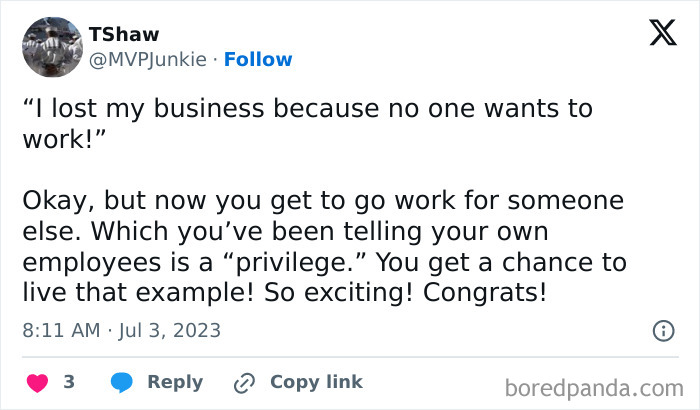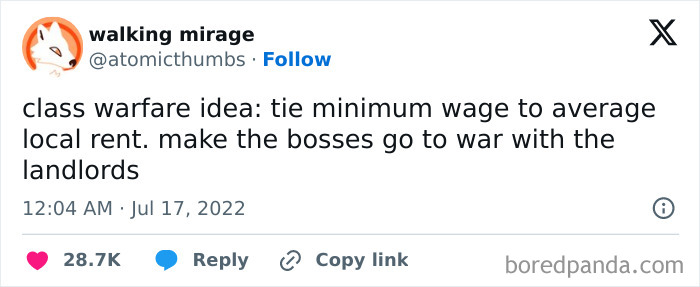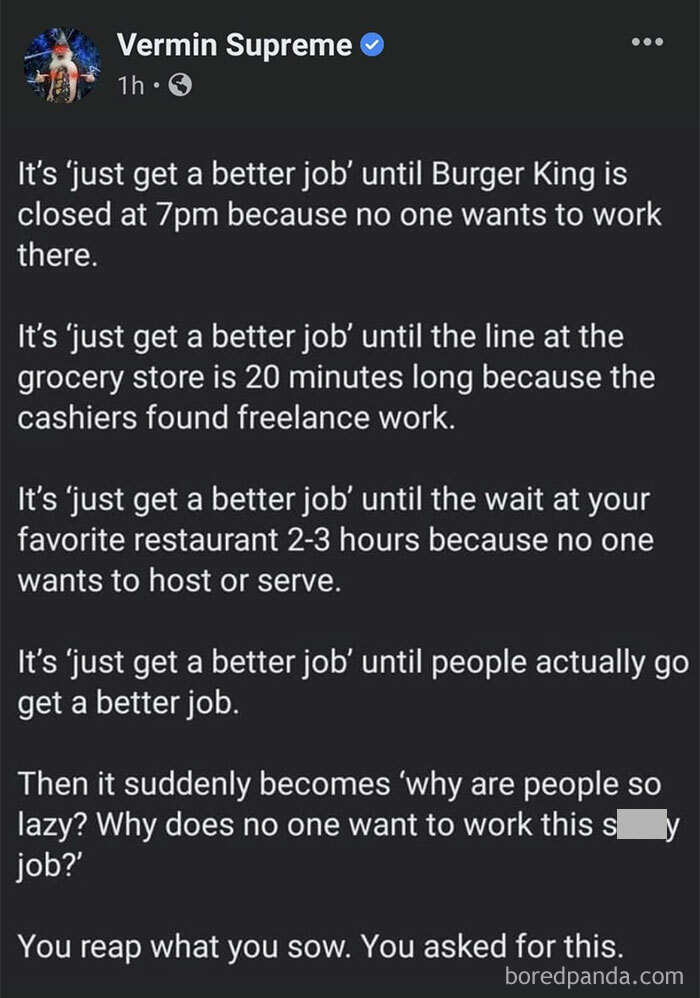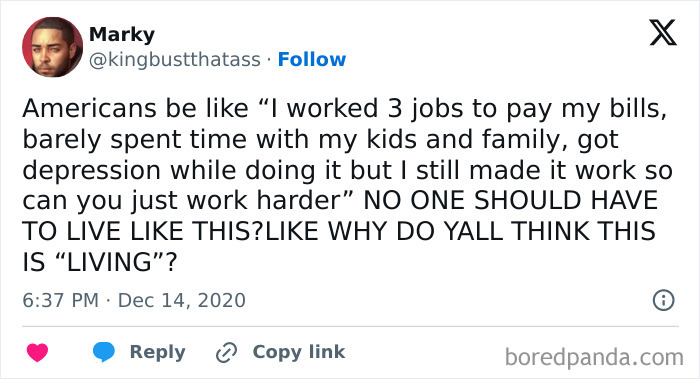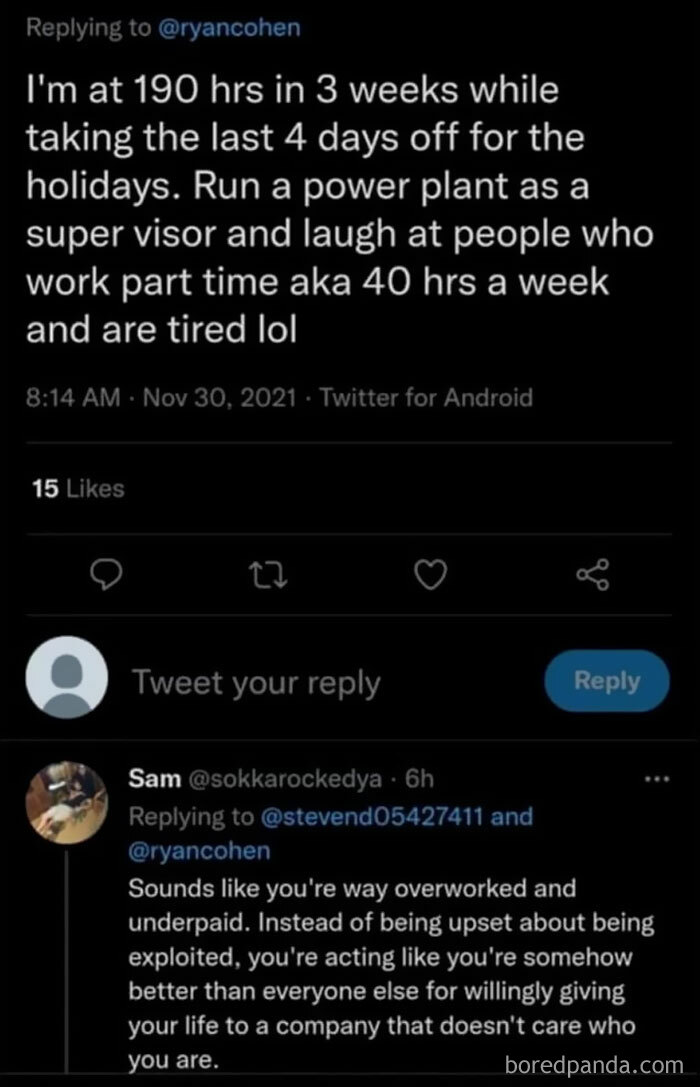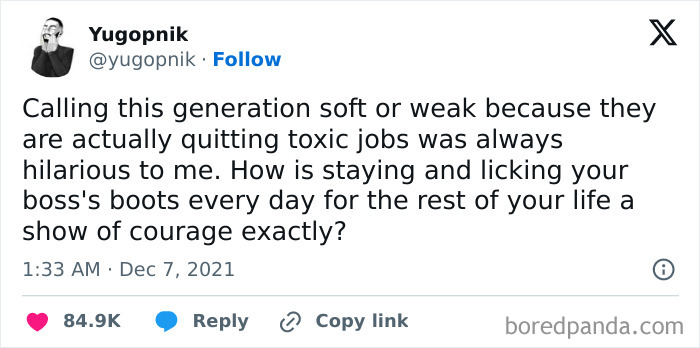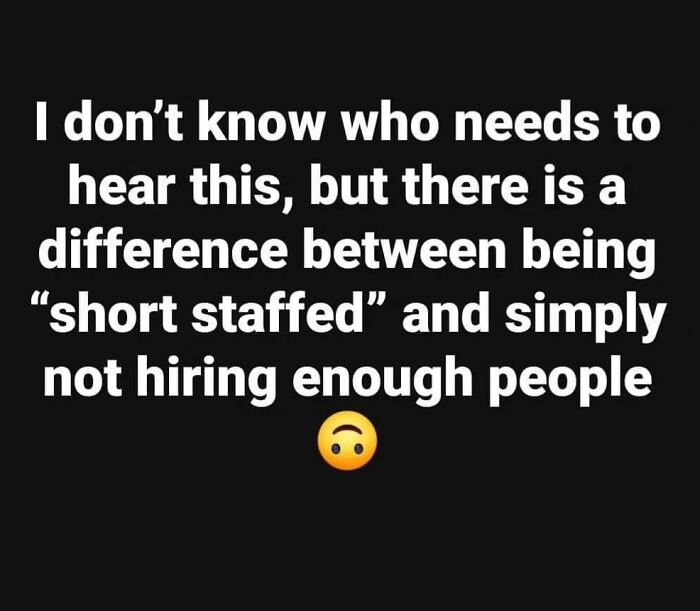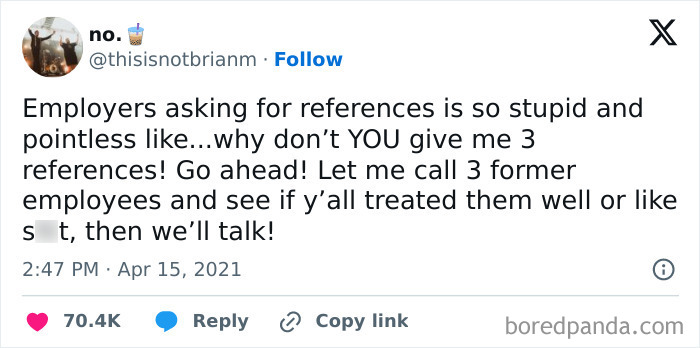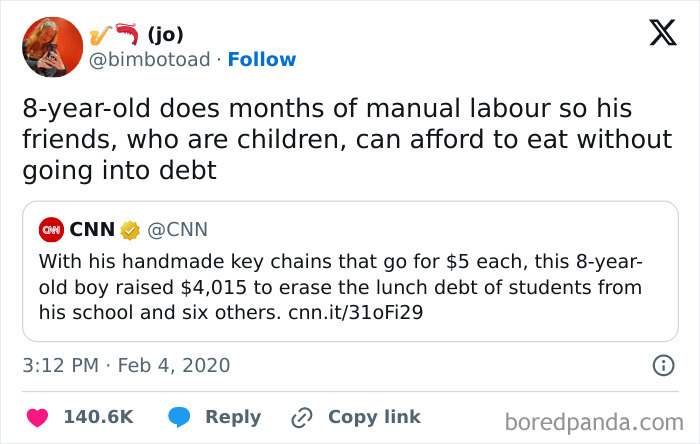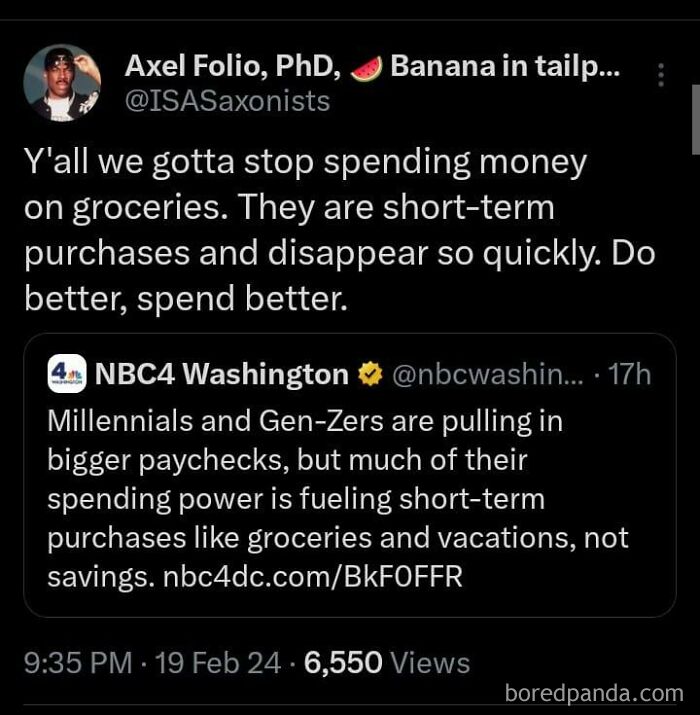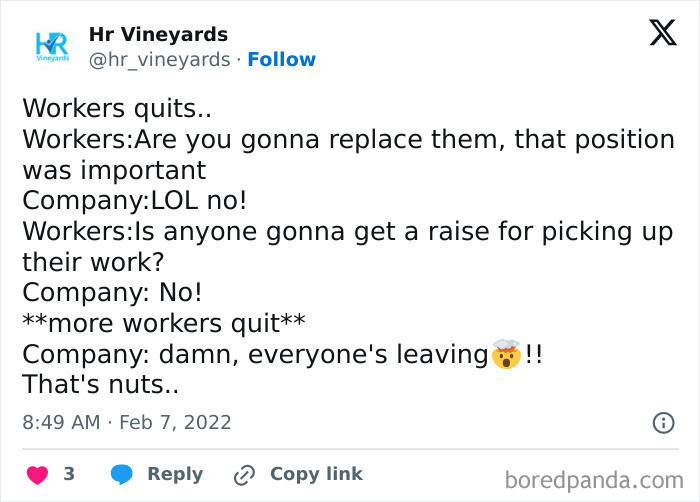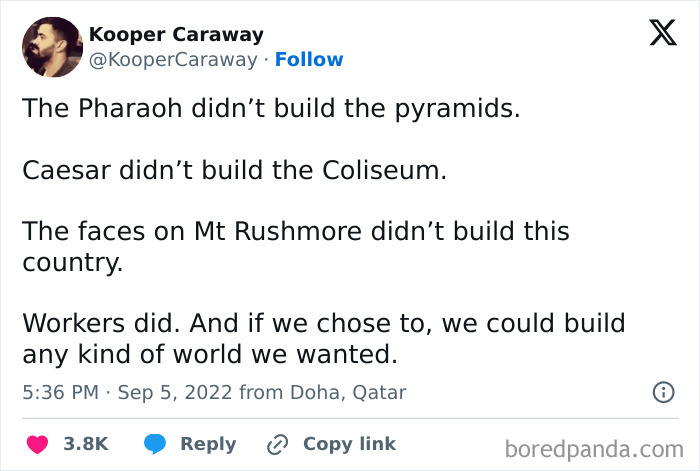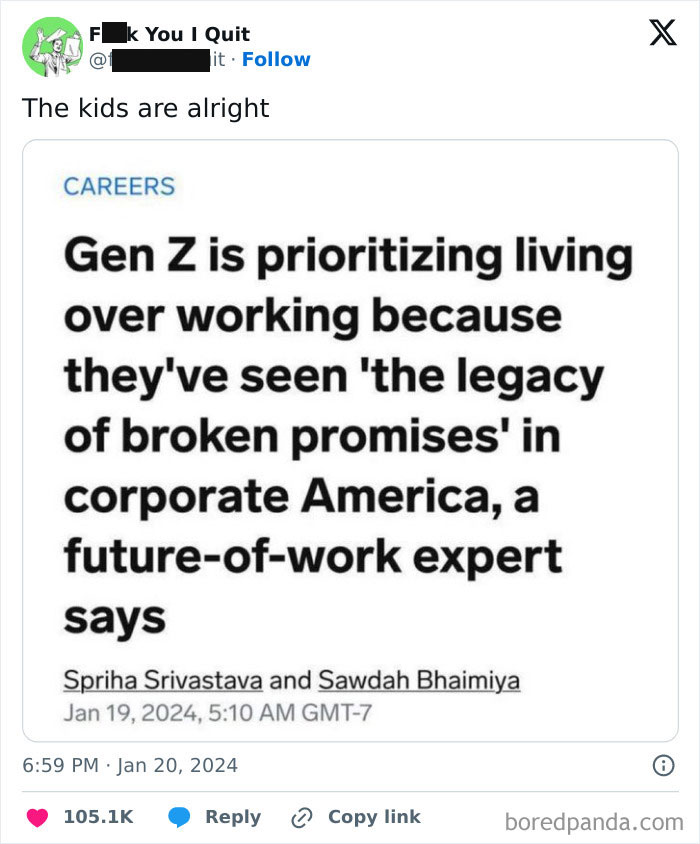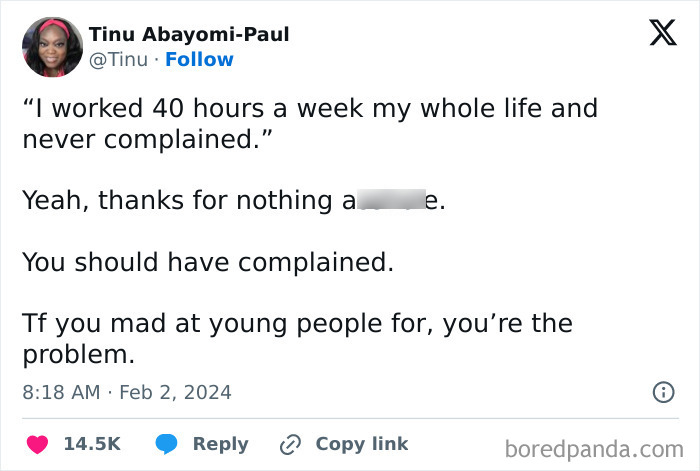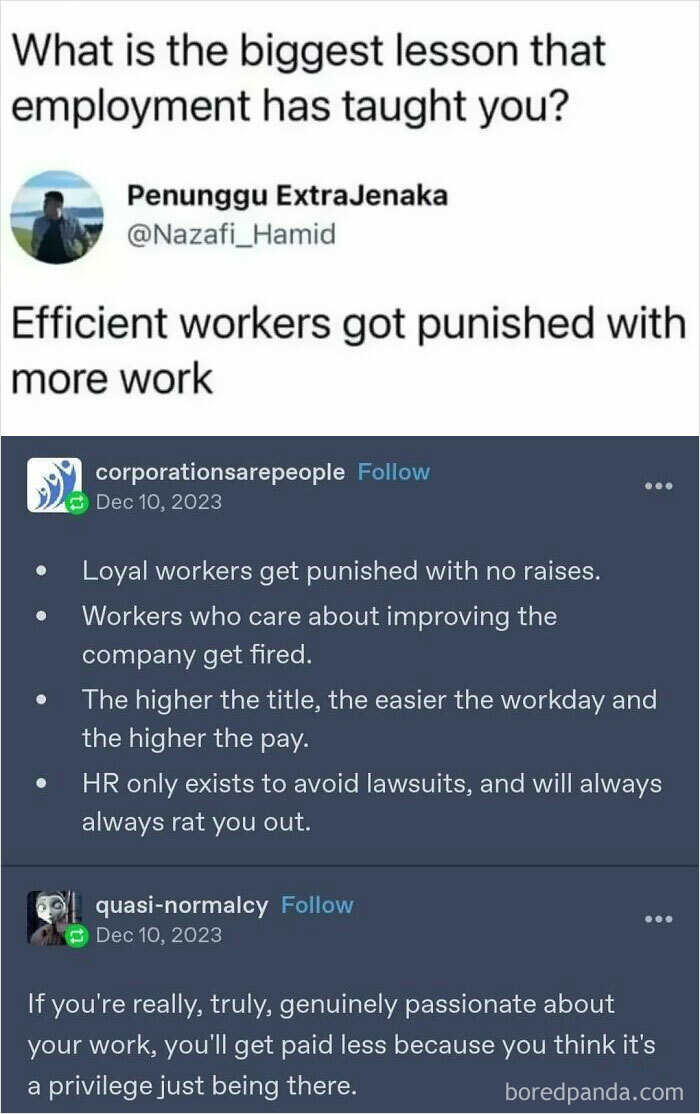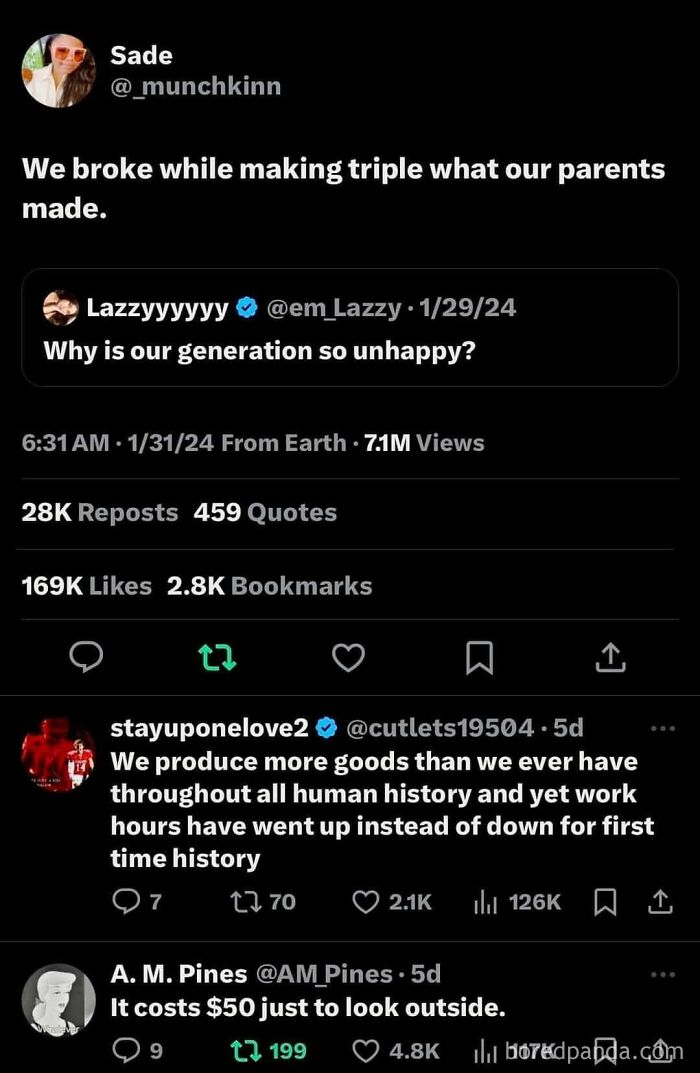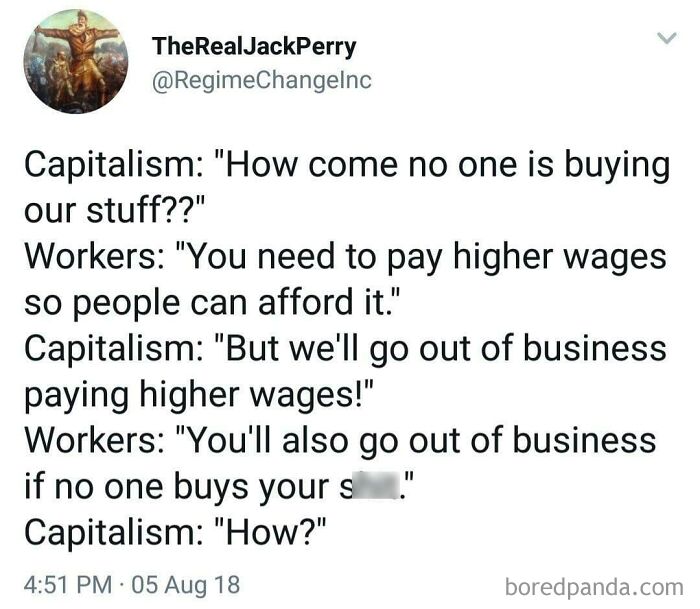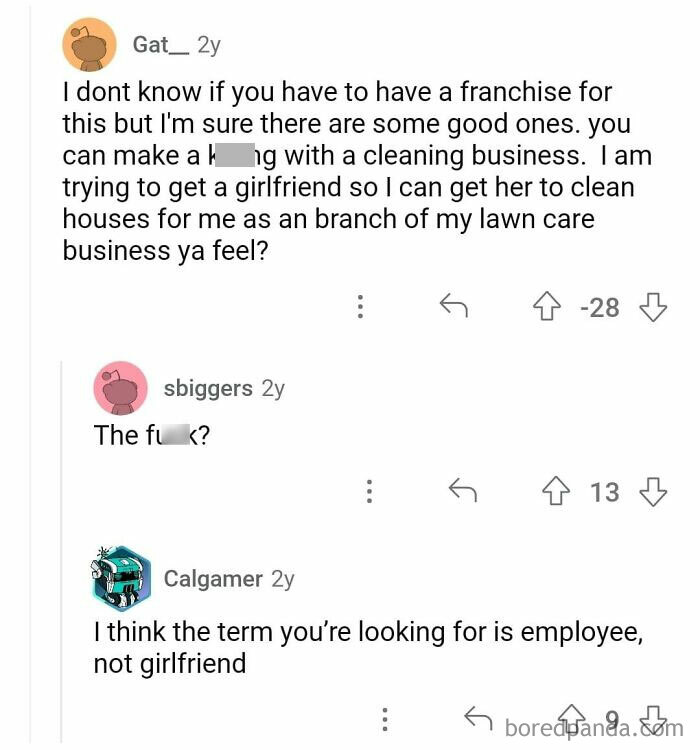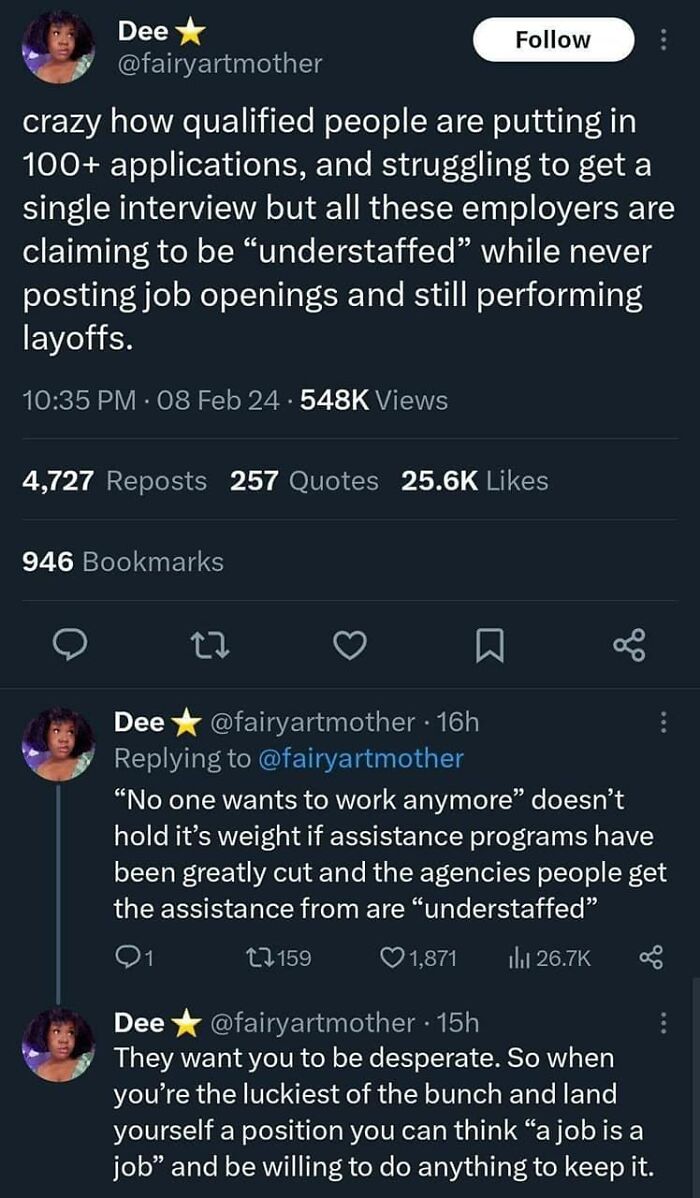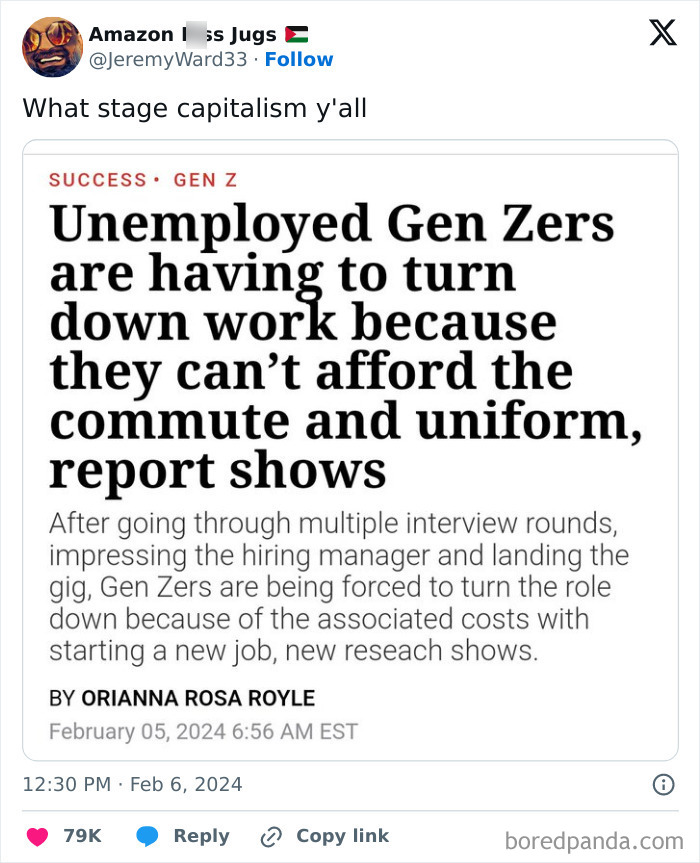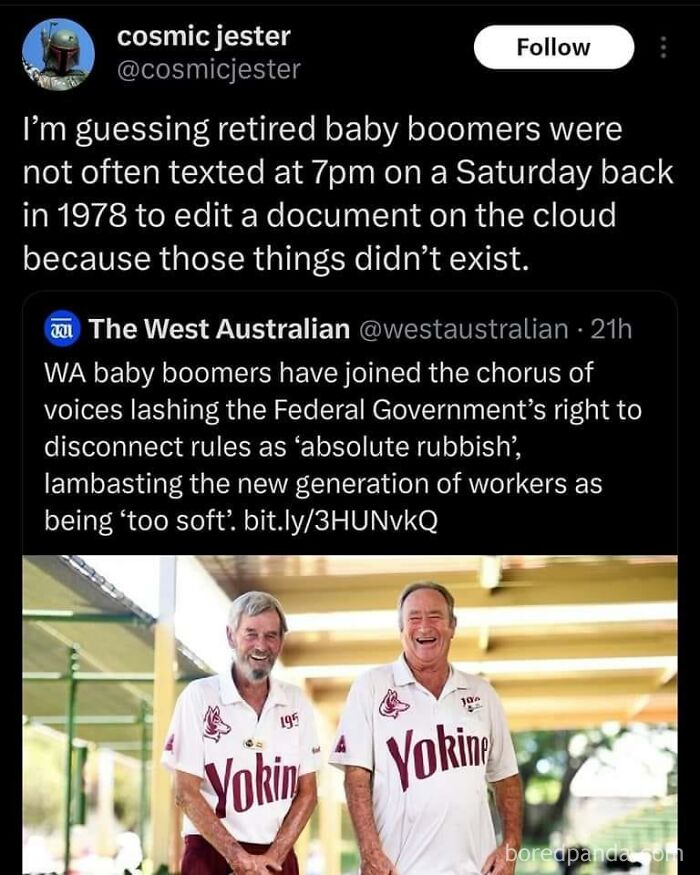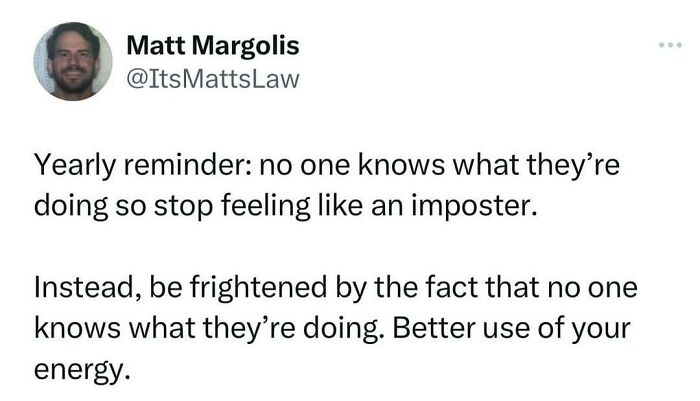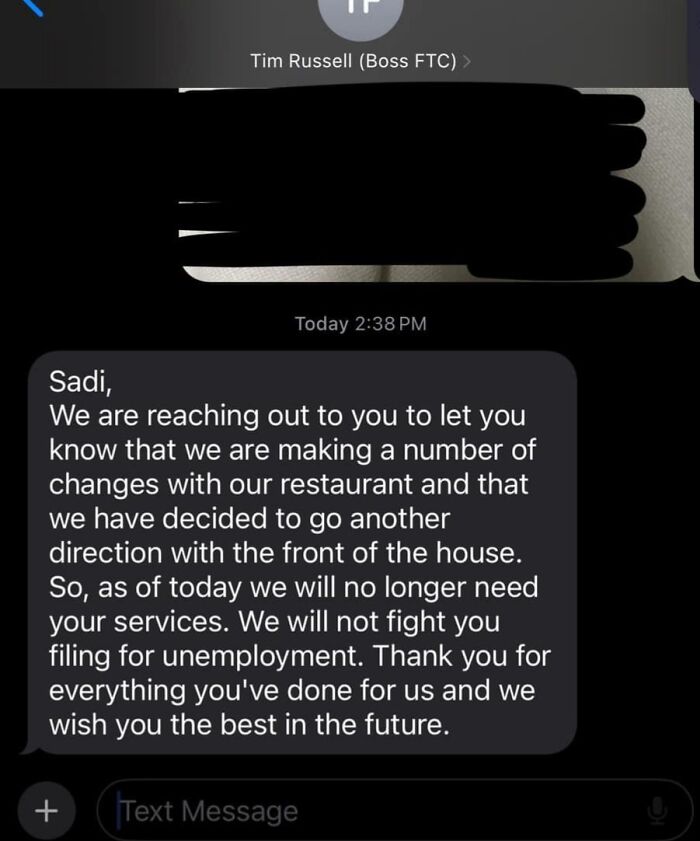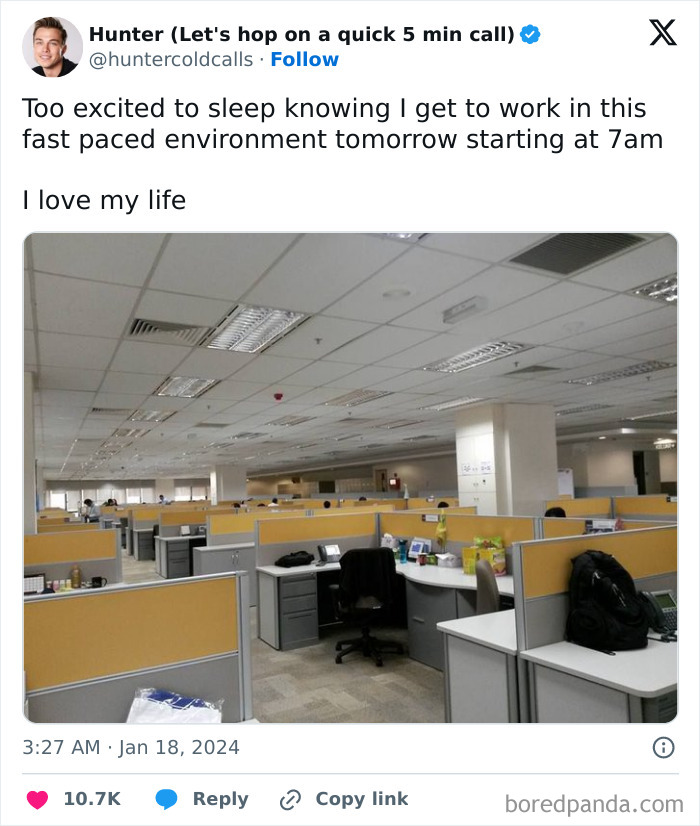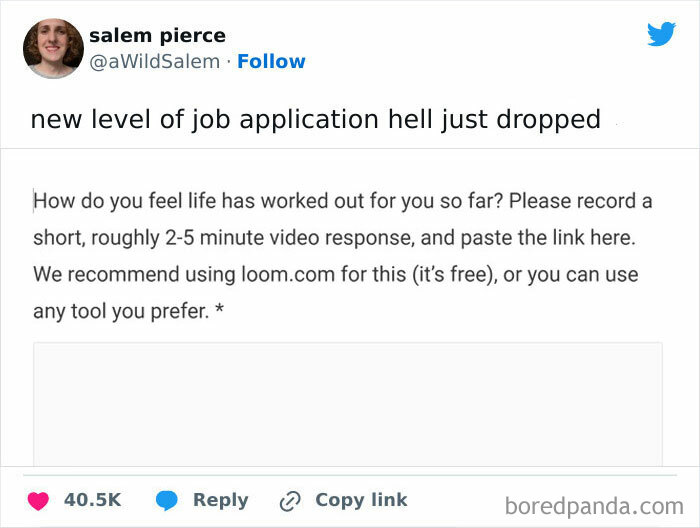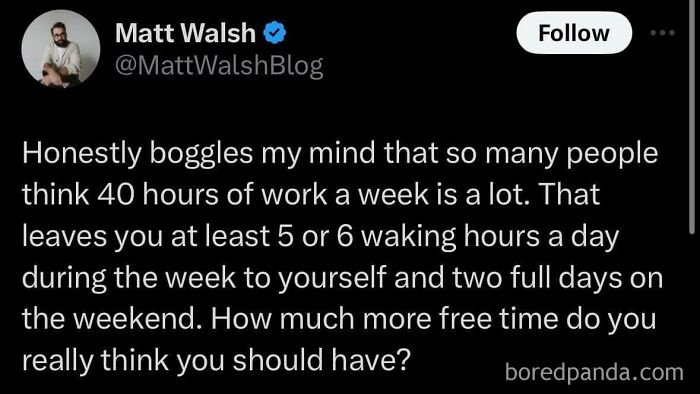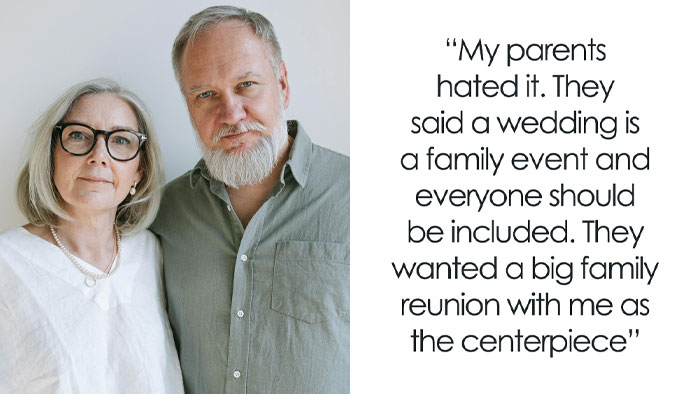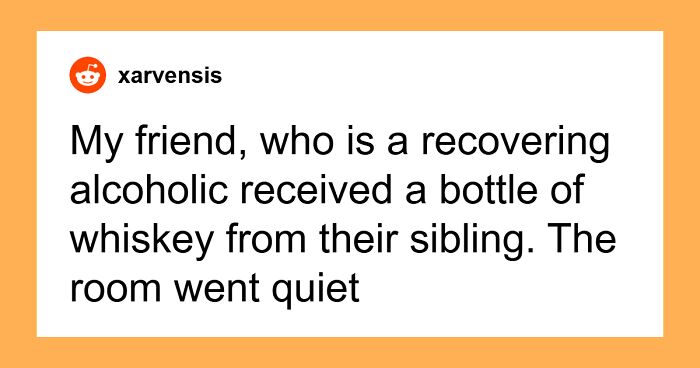
30 Posts About The State Of The World That Explain Why “No One Wants To Work” (New Pics)
Aaaah yes, work… can’t live with it, can’t live without it. This blessing-and-a-curse is something most individuals who’ve ever tried to support themselves financially have had to experience. And while some people actually love what they do and are happy to go to work every day, others despise the thought of it alone; often thanks to the toxic environment they find themselves in.
The toxic environment is just one of the many reasons why arguably no one wants to work anymore. And while such a statement might not be exactly true, this Facebook group titled exactly that—”No One Wants To Work”—has plenty of examples in store, showing why that could easily become a reality. Scroll down to find some of them on the list below and see for yourself what can make people far less eager to go to work.
Below you will also find insight shared by a psychotherapist, author, and mental health advocate, Allison Abrams, who was kind enough to answer a few of Bored Panda’s questions on employee well-being.
This post may include affiliate links.
I actually enjoy what I do because I remember my dear grandma telling me if I enjoyed what I did, I'd never work a day in my life. She was right. I love translating, have studied for years and specialised in my field. Unfortunately, what she couldn't see coming was the rise of the machines...
If you enjoy food or being able to pay rent and fix your car, which tends to make weird noises you try to drown out by turning up the radio, you most likely have—or need—a job. So do many people, some of whom continue working even if they hate what they do.
That’s likely one of the reasons why employee stress levels have been sky high over the past few years. According to Gallup’s State of the Global Workplace: 2023 Report, it has been rising for over a decade already, but the situation got especially grim in 2020, likely because of the chaos caused by the pandemic.
The report found that in 2022, nearly half of employed individuals participating in the survey felt stressed, making it the second year in a row with the number staying at record heights.
Delving deeper into the stress at work issue, Gallup’s report found that managers tend to play an outsized role in it. Such findings are not that difficult to believe bearing in mind how many people have to deal with an aggravating superior on a daily basis.
Back in 2018, the jobsite Monster.com carried out a survey, which revealed that nearly four-in-five people have had a toxic boss, whether at that point or earlier. Needless to say, working under the wing of someone that makes their time at work a living hell is typically more than enough to send an employee out the door.
To paraphrase a tumblr post I saw eons ago: You can't demand a service and denigrate those who provide that service.
Word. It's not. And these days, it's no longer "enough" and you just cannot make it work.
According to psychotherapist and mental health advocate Allison Abrams, some of the main things that are no longer being tolerated by employees are an authoritarian organizational structure, harassment, bullying, and lack of boundaries when it comes to work-life balance.
“A healthy work-life balance is important now as it always has been and thankfully our society is beginning to understand that,” she told Bored Panda in a recent interview. “We still have a long way to go, especially in some industries, but at least the issue is being acknowledged and that's always the first step.”
Agree. The number of stories of workers being treated like modern day slaves in a country that supposedly is the GOAT is truly, utterly terrifying. Being treated the way low-income workers are treated is abhorrent.
Those who are patient enough to deal with an aggravating boss or other troubles at work might not actually leave the company, but they can opt for quiet quitting instead. Entailing psychologically disengaging from work and typically doing the bare minimum, such a form of quitting often results in not only an unhappy employee but financial losses for the company, too.
According to Gallup’s report, together with actively disengaged employees, low engagement costs the global economy $8.8 trillion dollars. Moreover, it arguably does no favors for employee morale, either, as quiet quitters reportedly don’t foster supportive relationships with their fellow coworkers, their superiors, or the organization.
Well, I don't know about you, but I research any companies I'm applying to work for, and employee reviews on glassdoor or XING are one of the first places I look! If they all hated the place, I take my expertise elsewhere!
Some American states are easing child labor laws so more children can work more at dangerous jobs. So, soon the 8-year-old won't have to pay others' lunch debt. Problem solved. /s, just in case.
In a world where “no one wants to work”, the fact that someone is not quitting—be it quietly or not—doesn’t mean they’re not open to the option. According to Gallup, roughly half of surveyed employees admitted they were looking out for or actively seeking a new job. Among the main reasons for keeping an eye out for a new job are seeking for an increase in pay, improved well-being, or opportunities to grow and develop.
I've had a few instances of changing policy because, "yeah, sounds good, but I'm not doing that". I found freedom on the other side of the give a s**t wall.
Seeking greener pastures and having spent some time at home pondering what one wants out of their professional life (thanks again, Covid) has led to a wave of people “not wanting to work”; not where they used to, at least. Starting back in 2021, the wave was given the name of the Great Resignation, and saw some 71.6 million people say goodbye to their places of employment between April 2021 and April 2022, TechTarget reports.
The thing that finished my anti-capitalist radicalization was seeing what 10+ years of gruelling retail job have done to my mother. I simply refuse to end up like that.
A lot of those who quit during the Great Resignation were reportedly employees in the leisure, hospitality, and food services industries, who came to a realization that such a form of employment offered little job security. Representatives of the business sector arguably quit because of lack of a work-life balance, desire for more fulfillment, or simply because they wanted a better place to work.
“Since we have all lived through a global pandemic, for many of us, this has served as a reality check—a reminder of the brevity and preciousness of life,” Abrams told Bored Panda. “As is so often the case when this happens, we are encouraged to reevaluate our priorities and to ask ourselves what really matters in the larger scope of our lives. Grinding away in demanding jobs with unrealistically high expectations and little reward at the expense of our personal well-being and relationships is no longer acceptable.”
I complain all the time about my workload... does that make me a social justice warrior?
Especially the HR is ratting you out thing ... I worked in a really abusive environment with a team lead constantly inventing excuses to make us stay late or come in during the weekend. Me and my whole team went to HR and complained about that team lead. TL;DR: They removed everyone who complained from the company and the former team lead is now "strategy advisor" for the company.
For those who find themselves unhappy with their working conditions, the psychotherapist suggested that the first step is to ask yourself what’s in your control. “Communication is usually the best first step. For example, if you are not getting along with co-workers or a manager, having an open, authentic discussion around what is and what is not working can often work wonders.”
“If you are unable to change the external conditions in the workplace, you are left with two choices: either leave or, if that's not possible or ideal, change your mindset—come to an acceptance of the situation,” Abrams continued.
“Easier said than done, but for anyone to psychologically survive difficult circumstances, how they frame things, as well as what their narrative of and attitude toward the situation is vital and can make all the difference for their mental and emotional well-being.”
Money is a lot like §hit in that if you pile it up high in one place, all it does is stink. But if you spread it around wide and evenly, it makes things grow.
God, this could be a quote from 1895. Capitalism will NEVER change. 300+ years of boom/bust cycles destroying the 99% from having a normal stable job and life will someday be looked back as a GLOBAL dark age!
If you feel that scrolling through these images provided comfort that you’re not alone in a certain work-related situation or inspired to seek a much-needed change, feel free to continue to Bored Panda’s previous edition on ‘No One Wants To Work’ or check out these anti-work memes for more.
Every time I'm asked to take survey I always say that the business is understaffed.
I've mentioned this here before I think, but I used to have a boss who would call me at 3am to tell me there were emails in the inbox that needed looking at. That s**t SHOULD be illegal. (I turned my phone off over night in the end which he did not like, but he sure as hell wasn't paying me enough for 24/7 work)
Totally agree, the frozen pizza I just had for dinner was $6.50 last year and was $9 tonight . Sure it’s just $2.50 extra but that’s a 38% increase in 12 months. I sure don’t see how I can sustain a 38 % cost of living increase. How about we see some competent government? Stop printing money. Stop allowing competing firms to merge. Use antitrust laws to break up cartels etc
I got fired while on medical leave over text
I'm Gen X and I applaud the younger generations for standing up for themselves and wanting a better life. They are making positive changes in the work environment. Doing that stuff when I was younger would only equal in me being fired because "I'm not a team player"
Not many people want to be proctologists but the way bosses act the have to deal with the a******s way more often than you think.
I'm Gen X and I applaud the younger generations for standing up for themselves and wanting a better life. They are making positive changes in the work environment. Doing that stuff when I was younger would only equal in me being fired because "I'm not a team player"
Not many people want to be proctologists but the way bosses act the have to deal with the a******s way more often than you think.

 Dark Mode
Dark Mode 

 No fees, cancel anytime
No fees, cancel anytime 








